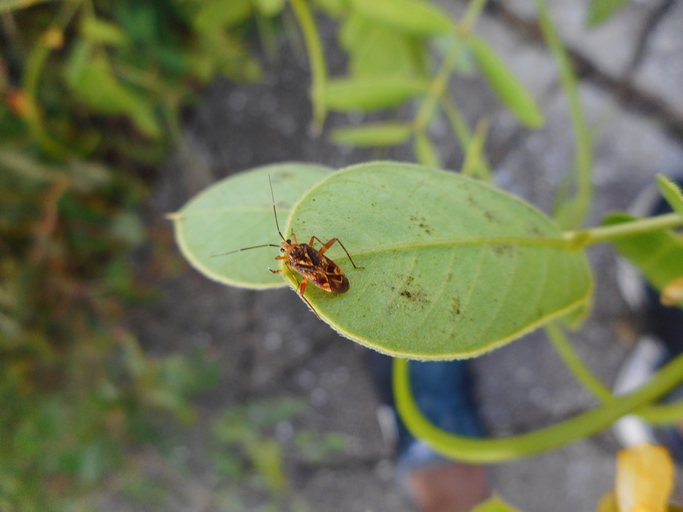
The southern chinch bug is a common pest throughout Florida. Chinch bugs are particularly prevalent in the hot summer months with infestations peaking in July. Chinch bug infestation is most commonly found in St. Augustine grass, the most common type of grass used in Florida lawns. They are one of the most expensive plant feeding pests in the state. These pests cause millions of dollars in damage to lawns and turf every year. Let’s look deeper at this common Florida outdoor pest.
The Chinch Bug
The Chinch bug can grow to be about 6 mm in length and have a black body with white wings as an adult and are red or yellow in the juvenile stages. While chinch bugs can fly, they typically don’t and prefer to stay hidden in grass instead. The female chinch bug can lay as many as 250 eggs in her lifetime, which averages from 40 to 70 days. Chinch bugs bite into grass blades near the soil line and drain the sap out of the grass until it turns brown and withers. Chinch bug infestations can appear as a circular brown patch on the lawn that can be confused with brown patch fungus. They are particularly attracted to St. Augustine grass and if you have this type of grass, experts say that it’s a matter of when, not if, you experience a chinch bug infestation.
Combatting Chinch Bugs
Combatting the chinch bug is a year-round process, though they might enter a dormant state during colder winters. The best defense against these pests are a good integrated pest management (IPM) plan. IPM includes irrigation, mowing, fertilizing and pest control. When IPM is done properly, it can help protect against chinch bug infestation that can damage or completely destroy your lawn. Some keys to effective IPM for these particular pests include:
- Avoid overwatering your lawn. Too much water helps chinch bugs thrive.
- Keep grass mowed to about three to four inches in height. Too short or too long and chinch bugs can take over.
- Always mow with a sharp blade. Dull blades shred the edge of the grass blades making them more prone to disease and infestation.
- Use water-soluble slow-release fertilizer. Nitrogen-rich fast-acting fertilizers help chinch bugs thrive.
- Enlist a professional pest management service to apply the right insecticides at the right times to deter chinch bug infestation.
If you have a chinch bugs in your yard or simply want to avoid an infestation, Your Oasis Outdoor Care can help! We care for your lawn applying the proper fertilizers and insecticides to keep chinch bugs at bay. We help protect your outdoor oasis so you have an outdoor space you and your family can enjoy without hassle or worry.




